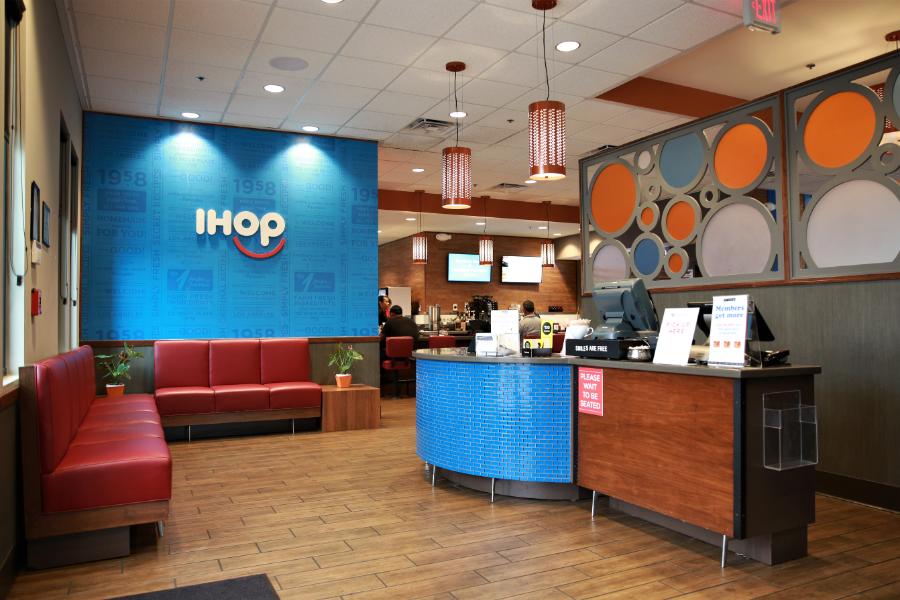
Greater Patchogue coverage is funded in part by New Village at Patchogue, open-concept rental residences with sleek contemporary design. Click here for a tour.
Patchogue-Medford Superintendent Michael Hynes delivered an hour-long State of the District address at Saxton Middle School in North Patchogue Tuesday evening.
About 130 people attended, including faculty members, parents and some children.
The speech follows a 10-minute video Dr. Hynes released in February that outlines “significant changes” coming to the district next year and moving forward under a five-year plan now being hammered out.
(Dr. Hynes’ full slide presentation is below.)
Notes & Quotes:
“I used to think all kids need to go to college … I [now] believe we need to design opportunities for the kids who are going to college, or to serve in the military, or enter the workforce. And each one of them is just as important as the other.”
Twelve superintendents have served the district since 1905. Four in the past 10 years.
From 2002 to 2014, the district’s enrollment has dropped from 8,866 to 7,773. During that time, the district’s white population has dropped from 73 to 53 percent, and the Hispanic or Latino population has risen from 20 percent to 33 percent. Despite these figures, Dr. Hynes said the district has made no major changes in response to the shifting demographics.
Students with disabilities comprise 10 percent of the district’s population. LEP [Limited English Proficient] students comprise 11 percent. Nearly 50 percent of Patchogue-Medford students receive free or reduced meals.
“We need our students more engaged in hands-on activities that are relevant to them. I don’t want kids disconnected. If you believe in the bell curve, you have your students doing really well, and then your students struggling … And then you have everyone else in the middle and you can slice that into thirds. I don’t want to lose those kids. If we could rethink the way we do things, we will engage all of our students as we move forward.”
Regents test scores have remained “somewhat flat” from 2012 to 2015.
The district has almost doubled the number of students taking AP courses in the last five years.
The district’s graduation rate is 85 percent, with an average GPA of almost 86.
“When we talk about what the possibilities might be, let’s not just try something small, and do a little bit of this and a little bit of that. We’re going to really think big.”
Dr. Hynes is encouraging educators and parents to “not embrace this test-and-punish deficit model of ranking and sorting kids all the time. It’s about something else that’s much, much different. It’s about teaching for the benefit of all of our students, and the world.” He said the school district’s philosophical shift will address this different mode of thinking moving forward.
In his presentation, Hynes displayed the book “Making Learning Whole: How Seven Principles of Teaching can Transform Education,” by David Perkins, the author of “The Eureka Effect.”
Dr. Hynes said the right conditions need to be created in order for all children to flourish.
The district’s immediate educational shifts will include longer recesses. “For me this is non-negotiable.”
Also, more structured and unstructured play, especially K-2. “I don’t mean have kids bust out the parcheesi sets … But, I know, that play — and you’ve heard this before — if done right, is the highest form of learning. And we have decimated it. It’s been eroded and evaporated. We’re bringing it back, significantly.”
The district has already been piloting yoga and meditation sessions for students. “It’s very hard to learn anything if you are not present and in the moment. I know that if kids are either socially, or emotionally, off-kilter, it’s going to impact the way they go about their business in school. Yoga centers them, allows them to be more present, and they are able to learn much more quickly.”
“We need to bring project-based learning back … It’s a lot of work but it’s so worth it.”
Hynes said everyone who comes into contact with students, from teachers and parents to bus drivers and cafeteria workers, need to be better aware of children’s developmental stages. “They need to know, from a developmental standpoint, where these kids are, so we all have a better understanding of what it means to be a kid. I really believe the byproduct is that you will see a higher performance level from our children.”
CLICK HERE FOR FULL PRESENTATION
























